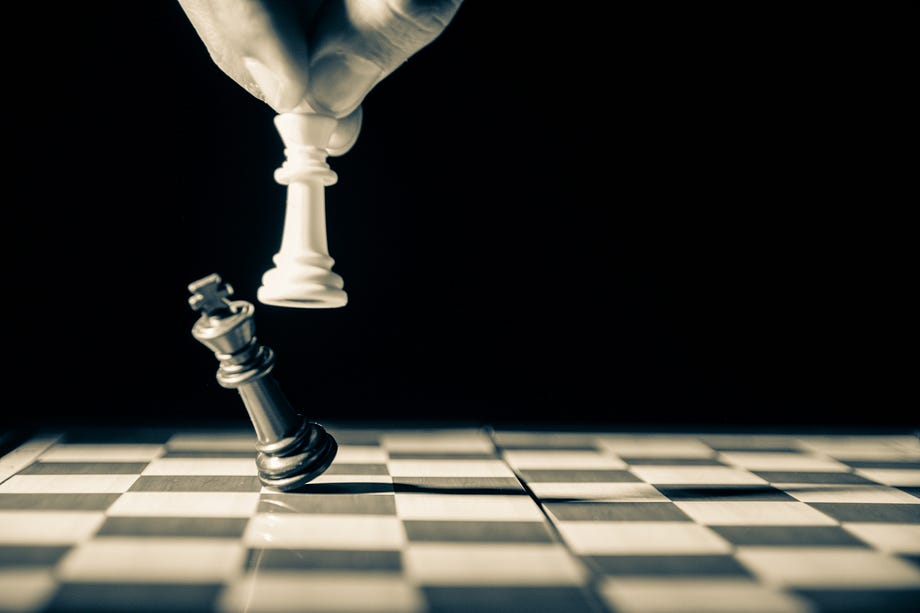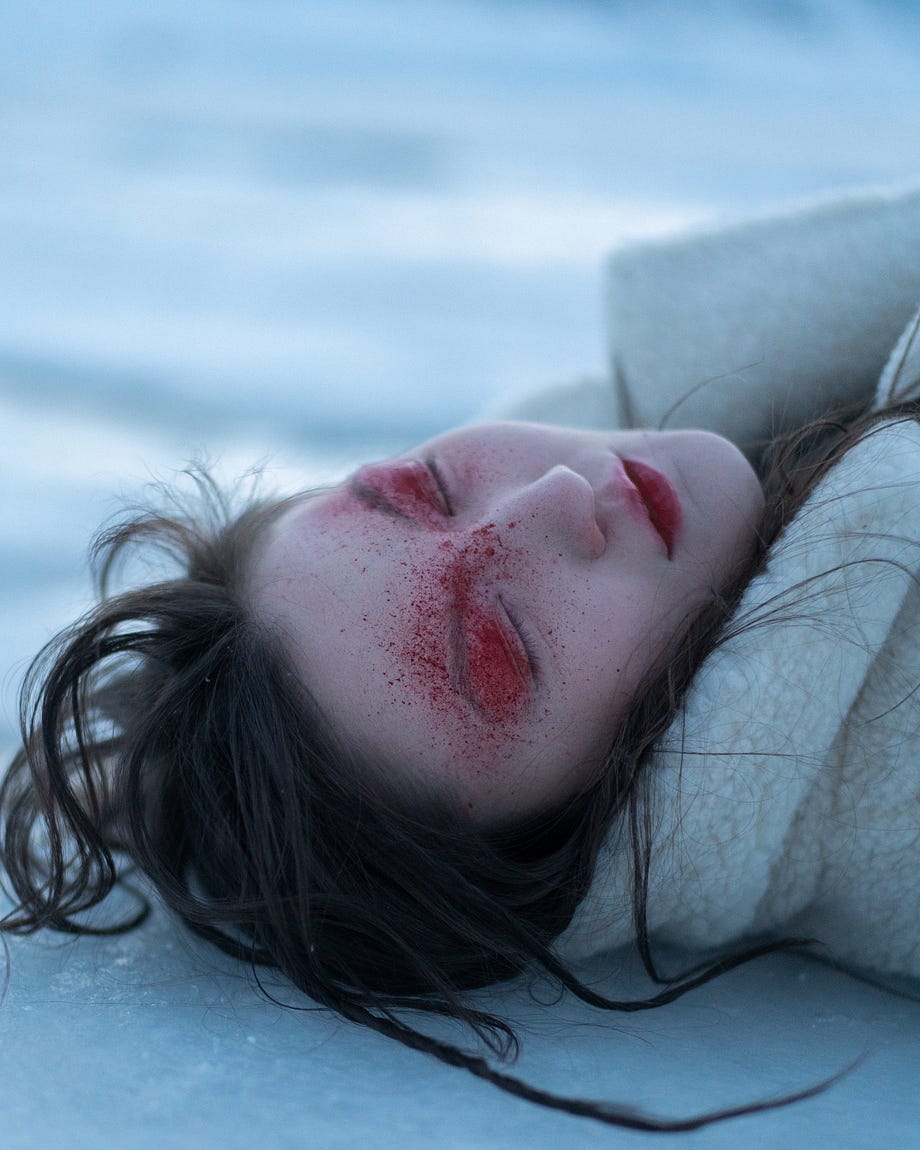Is a childhood accident responsible for creating a prolific serial killer, or was he evil from the start?

If not for this one incident, this one accident, would Alexander Pichushkin have grown up to become a renowned chess champion? Possibly. As it was, he grew up to become a notorious serial killer.
The incident itself was no earth-shattering event that had onlookers gasping in shock and horror, unable to look away. No, it was as innocent as a child falling off a swing.
Born in Moscow on April 9 in 1974, he had a brother, a half-sister, two loving parents, and a doting grandfather, someone important in his life who was going to be responsible for the young Alexanders’ interest in chess, but not his interest in killing people.
That was to come later.
As a six-year-old child, he was quite sociable, fun to be around, and made friends easily.

The accident, when it happened, wasn’t concerning at the moment of impact. But it became so when his moods changed, when he became more distant, less sociable, more aggressive.
It was a simple fall, laughed off even as his bum hit the ground, the six-year-old eager to get back on even as the swing seat came rushing back to hit him squarely in the temple, hard. There was hardly any blood, barely a bruise, but the damage to the frontal cortex had been done.
This area, according to psychology experts, is where the brain controls impulses like aggression and the impulse to do something very bad. From that day his moods changed, darkened, and his young face that was once quick to show joy before was now even quicker to show anger.
He lost friends, was ostracized, was shunned at school. His parents lost control of him, not understanding the change in their once happy child, and even his siblings shied away from him, not recognizing their younger brother.
His grandfather took his young grandson under his wing and into his home as an adolescent when school bullying served to intensify his mounting anger issues. In an attempt to channel what he perceived to be a sharp intellect searching for an outlet, he introduced him to chess in the local park.
Bitsa Park became Alexander’s haven. He took to the game naturally, challenging the old-timers who shuffled the worn pieces with gnarled fingers, decades of experience behind every wrinkle. Their myopic eyes traveled every inch of the chessboards, scrutinizing the young upstart from under bushy eyebrows who dared to sit across from them.
Alexander was a natural. He took them all on, beating them regularly at the tables and his grandfather was delighted that he could now channel his energy in a direction that didn’t involve violence.

And then his grandfather died and he was back to square one. Only worse this time. Vodka took the place of his departed grandparent, replacing kindly encouragements with darker and darker suggestions with every emptied bottle.
He continued to play chess, but the mean streak festering inside him was now being fueled daily by his new best friend. There was now a sly whispering voice in his mind that was getting harder to ignore, to control, whose slurred murmurings kept urging him to go out and find someone to kill.
Alexander Pichushkin was either too weak to resist, or too evil to want to resist.
The date was July 27, 1992, when Alexander, now 18, recruited a friend to help him find a victim. His name was Mikhail Odichuk, a classmate. He wasn’t evil, he was just tagging along out of curiosity, unsure whether his friend was serious or not. He found out the hard way when Alexander, determined to find a victim, discovered how uncommitted his accomplice was, so killed him instead.
When questioned after Odichuk’s body was found in a well 3 days later, the back of his head caved in, Alexander remained calm under the interrogation. With insufficient evidence, he managed to get away with his first murder. There were many more to come yet this appeared to satisfy his urges for the next 9 years.
From 2001 he went into overkill mode.
On May 17, he bludgeoned Yevgeny Pronin to death after a game of chess in Bitsa Park and hurled his body down a well. He tried the same tactic with pregnant Maria Viricheva, but she had fought back despite her injuries, hanging on to the sides of the well as he hurled her into the hole.
Pichushkin, ruthlessly unemotional, beat her head against the side of the dank wall until her fingernails snapped and she plummeted into the pit.

Incredibly, she survived the fall, managing, despite her numerous injuries, to climb out of her almost watery grave. Alive, a witness, she pointed a bloody, nail-less finger at her attacker.
To no end. She was an undocumented migrant, he was Russian. Life was unfair. No charges were pressed.
So, Alexander Pichushkin carried on killing, casually tossing his victims down wells to hide their corpses and cover up any evidence. Soon, even that was too much trouble, so he just killed them in his usual killing field of Bitsa Park, and left them where he had battered them to death.
But it only takes one mistake for a killer to be caught, for the murderous killing spree to end, for him to be brought to justice.
It wasn’t Mikhail Lobov in 2002 who survived his plunge into a dank well who was going to be Pichushkin’s undoing. Nor was it going to be Konstantin Polikarpov in 2003 who was beaten so badly that, even though he survived the frenzied assault, his memory did not. Nor was it going to be the ex-policeman, Nikolai Zacharchenko, whose body was found openly in the park on November 16, 2005.
The person who brought the reign of terror of Alexander Pichushkin to an end in July 2006 was Marina Moskalyova, not because she survived to finally point an accusing figure at the elusive serial killer. But because she had died.

Before she had accompanied her co-worker, Alexander Pichushkin, on a friendly walk through Bitsa Park, she had left a note for her son and husband, explaining where she had gone, with whom, and his phone number.
When her battered corpse was discovered, Pichushkin was suspect number one. Under questioning, he denied everything, denied even being with her the night of her disappearance, despite the evidence. Once again, he was going to get away with murder, or so he thought.
Marina Moskalyova had traveled by metro the night of her disappearance with her co-worker. Reviewing the CCTV footage of them together hours earlier at a station proved Pichushkin’s denials to be false. Two days later he was charged with her murder.
When his notebook was discovered after a search of his home, the investigators realized immediately that they had caught the serial killer who they had been hunting for so long. Finally, they had got their man. Finally, they had captured Alexander Pichushkin.
A more horrifying revelation was uncovered in his notebook of a drawing of 64 squares similar to those on a chessboard — and 62 of them had been filled in. Those 62 squares denoted the men, women, and children who Pichushkin had killed over the years.
This discovery gave Pichushkin the nickname of The Chessboard Killer.
When Pichushkin was confronted by his notebook, irrefutable proof that he was a mass murderer, he was more upset that 2 of his victims had survived than the fact that he had been caught. His only statement was that he was pleased he had at least surpassed the record of Andrei Chikatilo, The Butcher of Rostov, his idol.
With the pile of bodies stacked as high as the evidence against him, the judge found him guilty on October 27, 2007, and sentenced him to life imprisonment, with the first fifteen years to be spent in solitary confinement.
But he had very nearly gotten away with it again
There was no doubt that Alexander Pichushkin, The Chessboard Killer, would have continued killing indiscriminately if not for that one seemingly inconsequential metro ticket. His sentence of life in prison had allowed him to dodge the fate that had been served to The Butcher of Rostov, a bullet to the back of the head.
But a truly just punishment for The Chessboard Killer would have been for him to have been incarcerated in a deep, dank hole similar to where he had callously hurled his bludgeoned victims, a single chess piece his only companion.
